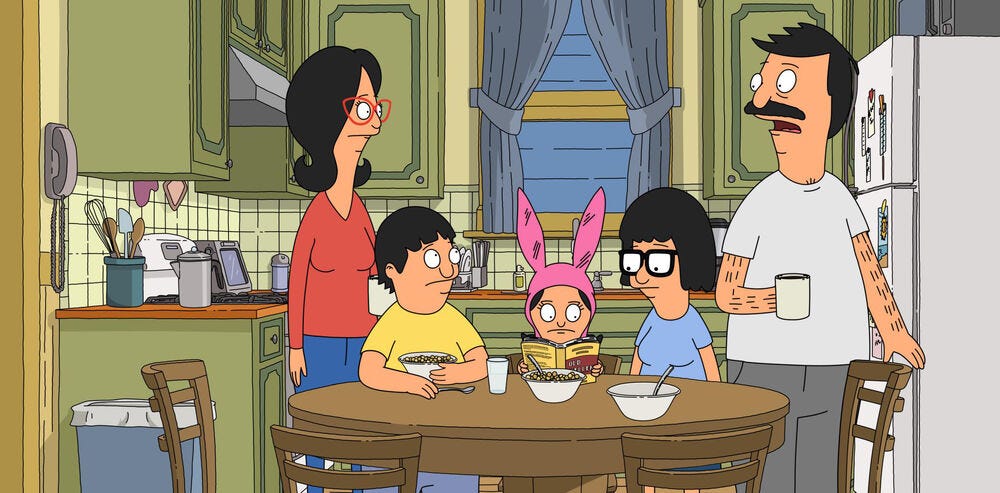Food News: No More 'Sell By' Dates or Fluoridated Water
The newsletter that contains the secret for longevity and eternal youth.
hi hi,
i’m almost always trying to get myself to read and write more (not about food news) hoping to bring these back as more regular and comfortable habits in my life. one of my strategies for reading more is to make better use of my library card, especially the opportunity to get free audiobooks (books are books, no matter what format you consume them in!).
the most recent books i’ve picked up from the library are Ruin Their Crops on the Ground by Andrea Freeman and The Hidden Palace by Helene Wecker (a sequel to The Golem and the Jinni, my favorite novel i read this year!).
i’ve also been curating my “to read” list in the storygraph app instead of in random notes on my phone, internet bookmarks, post it notes, or even worse…bouncing around in my brain. i just added a bunch of the books from this 2024 Food and Farming Holiday Book Gift Guide. it’s a long list that is always getting longer, which means i have less time to rewatch bob’s burgers, but a baby’s gotta do what a baby’s gotta do!
what books have you been enjoying lately? comment on this post to add to my 2025 reading list!
-k
What I’ve Read
USDA-FDA Seek Information About Food Date Labeling, Aim is to Provide Further Clarity, Transparency and Cost Savings for U.S. Consumers - Currently, the only federally regulated or required Date Labeling information is for infant formula. This means that the dates we see on our food packages are unstandardized because they are up to the manufacturer's discretion, which tends to be very conservative. Our federal regulatory agencies (USDA FSIS and FDA) are digging into ‘Sell By,’ ‘Use By,’ and ‘Best By’ dates with a joint Request for Information (RFI). There are 13 questions related to “Date Labeling” collecting information from consumer perspectives and industry preferences. The comment period is open until February 3, 2025. You may be familiar with a recent FDA RFI that led to official draft guidance—Labeling of Plant-Based Milk Alternatives and Voluntary Nutrient Statements: Guidance for Industry.
Speaking of…
California bans food ‘sell by’ dates. Will it save you money without getting you sick? - California Assembly Bill 660 seeks to update the existing law around food date labeling—with the exceptions of “infant formula, eggs, pasteurized in-shell eggs, or beer and other malt beverages.” The goal of doing so is to create consistency in labeling and yes, it will ban ‘Sell By’ labels—which are really only relevant for retail settings. The new options my fellow Californians can expect to see by January 1, 2026 (if this compliance date doesn’t get delayed or altered) are for quality—“best if used by”—and safety—“use by.” Grocery stores can also add “packed on” dates for prepared foods in addition to the quality or safety label. Potential positive impacts are things like food charity operations accepting more nonperishables and reducing food waste.
R.F.K., Jr., Wants to Eliminate Fluoridated Water. He Used to Bottle and Sell It - The RFK Jr grift is not new. In 1999 (since reading this the song has been stuck in my head on an endless loop) RFK Jr co-founded Keeper Springs, a bottled water company, to supposedly support the work of the Waterkeeper Alliance. Critics called out the hypocrisy of selling bottled water to help the environment. Before the failed company closed in 2013, a chemical analysis of Keeper Springs water conducted in 2009 showed that each serving contained up to 1.3 mg of fluoride. For comparison, the HHS recommends a level of 0.7 mg/L, which is the average amount found in tap water. Fluoride fearmongering is one of the many topics of disinformation RFK Jr pushes and he has mentioned that he wants fluoride out of our water systems despite its many public health benefits.
Speaking of RFK Jr and the very real threats his anti-science grifts pose to public health…Dietary supplement industry cheers RFK Jr.’s HHS nomination and RFK's Jr.'s lawyer has asked the FDA to revoke polio vaccine approval: NYT.
The Great Grocery Squeeze - Communities where fresh groceries are inaccessible, often referred to as food deserts, are a human-made problem that can be traced to the late 1980s. Spoiler alert, the human who created this problem, among many others, is Ronald Reagan. This article by Stacy Mitchell for The Atlantic cites multiple cities that are now considered food deserts, by the USDA definition, but had at least one grocery store before the 1980s. Mitchell makes the case that the catalyst for this change was the Reagan Administration’s affinity for deregulation. Specifically, the shift from a national antitrust focus to a lack of government enforcement of the Robinson-Patman Act, which essentially forbade discriminatory pricing strategies. This shift inspired massive consolidation in the grocery industry and paved the way for giants like Walmart and Kroger.
Consolidation created an unfriendly environment for competition and smaller, independent stores could not afford to stay in business. Despite causing these stores to shut down, large chains did not fill in the gaps in lower-income communities and instead focused on implementing supermarkets in bigger cities. Over the decades these gaps widened and other lacking infrastructure, like public transportation, and economic policies worsened them leaving many rural and low-income communities without consistent access to fresh foods. The Biden Administration made some strides toward an antitrust focus, especially in the grocery industry, but this progress is expected to be reversed by the next Trump Administration.
Did you know I have a background in food access research? Check out my article on emergency food access in south-central Indiana and the research I supported on evaluations for access to fresh, healthy food in Indiana.
Exclusive: US issues order mandating bird flu testing of milk supply - The USDA issued a Federal Order requiring raw milk samples to be collected from farms and processors and shared with the USDA for testing of bird flu. The rollout of this mandate begins on December 16th in California, Colorado, Michigan, Oregon, and Pennsylvania. The USDA response to bird flu has been confusing and a tad chaotic, up until this Order it only required testing of lactating dairy cattle who were moved across state lines. We are up to 60 confirmed reported human cases of Bird Flu in the US, the majority of exposure has come from farmed cow populations and 2 cases were detected through national flu surveillance. So far it has affected 832 dairy herds, 122,790,926 poultry birds, and 10,718 wild birds
Albertsons Sues Kroger After Judge Blocks $25 Billion Merger - On Tuesday Judge Adrienne Nelson (U.S. District Court in Oregon) sided with the FTC and issued a preliminary injunction blocking Kroger’s acquisition of Albertsons. Shortly after a judge in Washington also blocked the deal, a state challenge in Colorado is still pending. The supermarket giants then decided to voluntarily halt this merger deal that was initially announced in 2022. Cut to Wednesday and Albertsons filed a lawsuit in Delaware accusing Korger of many things, including failing to do what it needed to do to gain regulatory approval for their merger. Kroger is obviously denying any wrongdoing but Albertsons is seeking $600 million in termination fees. “Albertsons said it will also seek ‘billions of dollars’ in damages from Kroger ‘to make Albertsons and its shareholders whole.’” When you hear huge retailers claim they can’t do anything about high grocery prices, just remember they had plenty of resources to pursue this merger, along with these current and future lawsuits, because they didn’t win this expensive game of IRL Monopoly.
If You’re Going to Read 1 Piece in Full
The Longevity Hot Spots That Weren’t
Quick Summary
When I first read about Dan Buettner, described by Wikipedia as an “American author, explorer, storyteller, longevity researcher and public speaker” I was reminded of learning about early explorers (aka European colonizers) in elementary school. Buettner’s website claims he “discovered the five places in the world—dubbed blue zones—where people lived the longest, healthiest lives,” which gives me big Ponce de León coming to, what we know as, Florida in search of the Fountain of Youth vibes. The blue zone theory of public health is that the secret to longevity lies in one’s environment and activities within this environment—daily physical movement, supportive community, focus on plant-based foods—rather than genetics and is based on data gathered from places with high concentrations of (super)centenarians. One of the ways Buettner wanted to expand on this theory was to create Blue Zones Project-certified cities in the US.
This article by Shayla Love for The New Republic shares perspectives from cities that are or were involved or considered involvement in the Blue Zones Project and academics whose research conflicts with blue zone findings. Critics are quick to call out issues in implementation, methodology, and the commercialization of blue zones—something I noticed years ago when I came across a Blue Zones stamp of approval on a can of Bush’s Baked Beans. One of these critics, Saul Newman points out that predictive data, collected from “research on extreme age” is likely to be flawed due to rounding errors or interference of varying global factors, like lacking infrastructure. Another notable critic is Buettner’s original partner, demographer Michel Poulain, who effectively coined “blue zones,” and became frustrated with this commercialization. He is no longer on speaking terms with Buettner who sold his company to Adventist Health.
Why It Matters
Blue zone cities aren’t inherently a problematic or even unique idea. There is plenty of evidence to back up daily physical activity, living in community, and eating fruits and veggies as general health-promoting behaviors. And it’s fairly common to study populations that you think may offer insights about a specific topic. But as I frequently say, we should trust science but not all science-y things. Blue Zones’—the brand—successes have more to do with how Buettner packaged and sold the data (science-y) than the actual data (science). He told a great story that feeds into humans’ desire to find the secret to long life, especially if the secret is that we can control longevity through a series of lifestyle choices.
We want easy, neat, universally applicable answers— like the existence of gravity, the speed of light, or that the earth is round—which science so rarely gives. It would be fantastic to be able to say that if you eat mostly plant-based, have a tight-knit community, and live in a walkable neighborhood you will live to 120 but we can’t prove absolute causation when doing real-life data collection because humans and our environments are highly variable. What we need to remember is that when someone speaks confidently and offers each of us the same easy, neat answer to one of our “problems” it is almost always because they are selling the solution.
There are lots of Michel Poulains in this world who recognize the difference between pursuing science to seek knowledge and pursuing science to seek something you can package and sell. Unfortunately, there are also plenty of Dan Buettners. Thanks to our high valuation of commercialized success, we are much more likely to know about them than the Poulains. So ultimately, why this breakdown of the blue zones hype matters is that nuance, however unsexy, really fucking matters.








